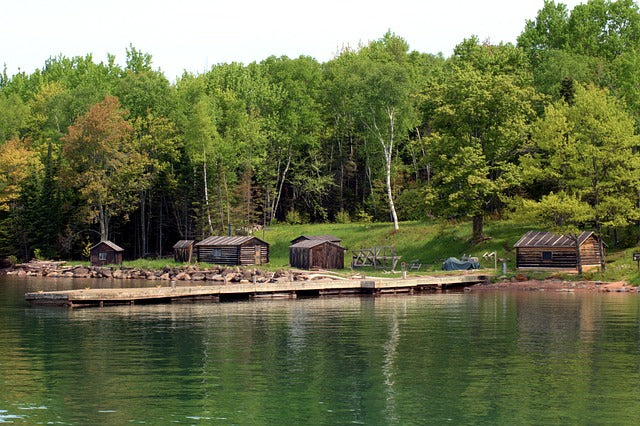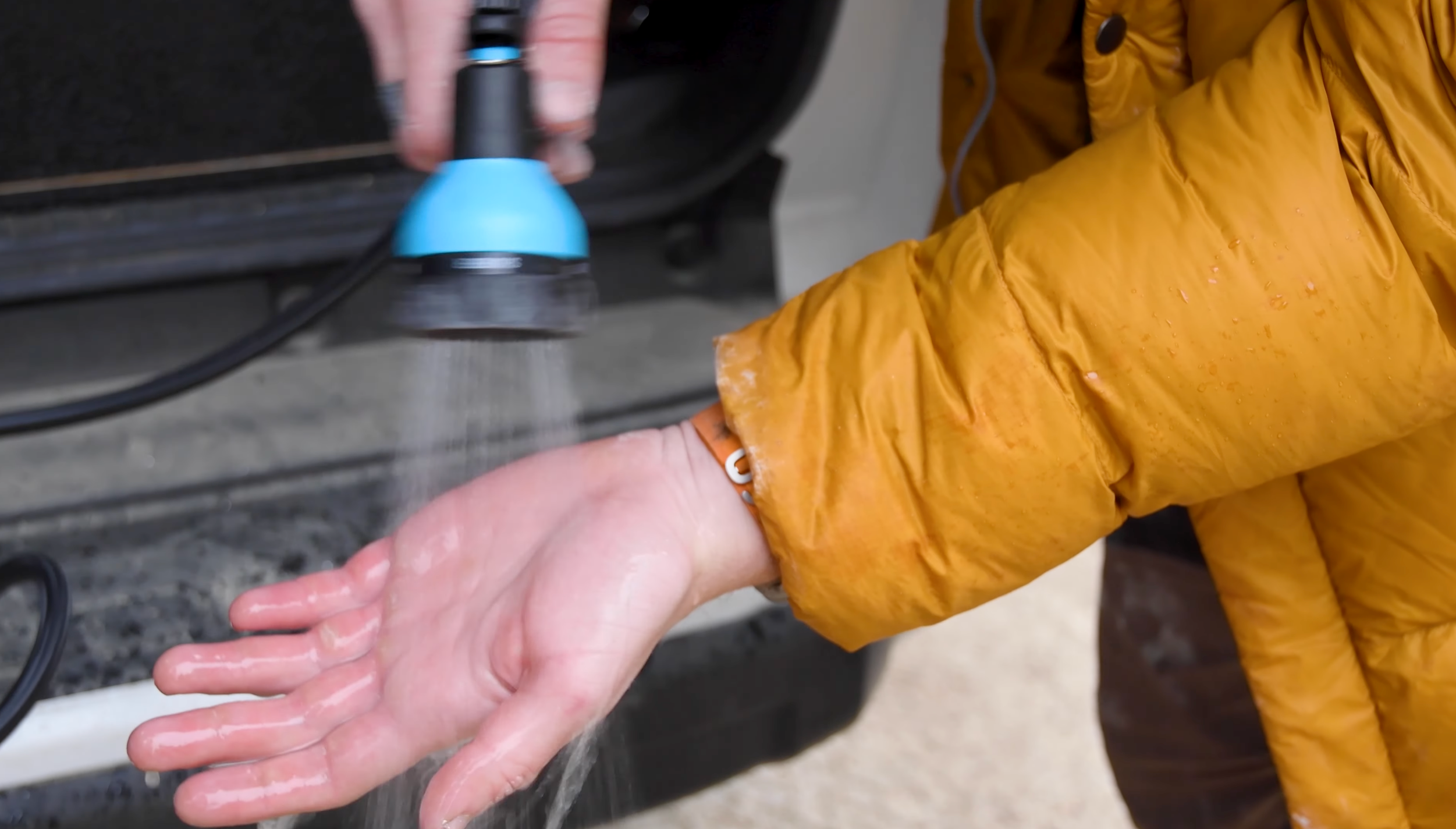
Living off-grid is a lifestyle choice that many people are now embracing, drawn by the allure of self-sufficiency and a closer connection to nature. While the lifestyle seems idyllic, there are obviously many challenges involved with off grid living; one of the toughest being maintaining a stable, clean, and consistent water supply. In this blog we will explore the various off-grid water system options, including how they work and positives and negatives of each, to help you decide what type could work for your off-grid lifestyle.
Understanding Off-Grid Water Systems
Off-grid living means being disconnected from municipal water supplies, requiring alternative methods to source, store, and use water. Here's a look at the traditional systems used for off-grid water management:
- Rainwater Harvesting
Rainwater harvesting involves collecting and storing rainwater from roofs and other surfaces. It's a sustainable and cost-effective method, especially in regions with adequate rainfall. This system typically includes gutters, filtration systems, and storage tanks. The stored water can be used for gardening, livestock, and, with proper treatment, for drinking and household use.
- Wells
Groundwater wells are a traditional source of water for off-grid living. They require drilling down to the water table and installing a pump system. Wells offer a reliable supply of water, but their feasibility depends on the local groundwater levels and quality. Regular testing and maintenance are essential to ensure water safety and the well's longevity.
- Water Hauling
In areas where wells or rainwater harvesting are not feasible, hauling water from a nearby source is an option. This method involves transporting large quantities of water to your location and storing it in tanks. It's labor-intensive and requires a significant amount of planning regarding storage and conservation.
- Natural Sources
Utilizing nearby rivers, streams, or lakes can provide an off-grid water supply. This method requires a purification system to make the water safe for consumption. Factors like seasonal variations, environmental protection laws, and potential contamination need consideration.
The Challenges of Traditional Off-Grid Water Systems
While traditional off-grid water systems are essential for self-sufficient living, they come with their own set of challenges. Understanding these drawbacks is crucial for anyone considering or already living off-grid. Here, we expand on the negative aspects of traditional off-grid water systems, contrasting them with the advantages of modern solutions.
- Rainwater Harvesting
- Dependency on Weather: Rainwater harvesting is highly dependent on local rainfall patterns. In areas with low or seasonal rainfall, it can be unreliable, leading to water scarcity.
- Storage Limitations: Large storage tanks are needed to collect and store enough water. This requires significant space and investment.
- Maintenance and Filtration: The system needs regular maintenance to keep gutters and storage tanks clean. Additionally, proper filtration systems are required to make the water safe for drinking, adding to the cost and complexity.
- Water Quality Concerns: The quality of collected rainwater can be affected by air pollution and roofing materials, necessitating rigorous testing and treatment.
- Wells
- Initial Cost and Installation: Drilling a well can be expensive, with costs varying greatly depending on location and depth required to reach the water table.
- Groundwater Depletion: In some areas, excessive use of wells can lead to groundwater depletion, affecting local ecosystems and future water availability.
- Quality and Contamination Risks: Groundwater can be contaminated with natural and man-made pollutants. Regular testing and potential treatment are required to ensure safety.
- Mechanical Failures: Well pumps and related equipment can fail, requiring repairs or replacements, which can be costly and challenging in remote locations.
- Water Hauling
- Labor-Intensive: Regularly transporting large quantities of water is physically demanding and time-consuming.
- Dependence on External Sources: You are reliant on external water sources, which may not always be available or may be subject to restrictions during droughts.
- Storage Issues: Similar to rainwater harvesting, storing hauled water requires large tanks, which need space and maintenance.
- Fuel Costs: Regular trips to fetch water increase fuel consumption, adding to the overall expense.
- Natural Sources (Streams and Lakes)
- Legal Restrictions: Using water from natural sources is often regulated, and in some areas, it might be illegal without proper permits.
- Environmental Impact: Drawing water from natural ecosystems can impact local flora and fauna, especially in sensitive environments.
- Variability and Accessibility: Natural water sources can dry up or become polluted, and accessing them can be challenging, especially during extreme weather conditions.
- Purification Required: Water from these sources almost always requires treatment to remove pathogens and contaminants, adding to the complexity and cost.

So you can see that securing water for your off-grid water system can be a challenge. Once you’ve solved that, a new challenge arises: the best method for dispensing water, particularly for daily needs such as bathing and cleaning, without the necessity of installing traditional plumbing. This query highlights the importance of finding practical, efficient solutions for water usage in an off-grid setting, where traditional water infrastructure is not available. Addressing this issue is crucial for maintaining a comfortable and sustainable off-grid lifestyle.
Portable Showers: Off-Grid Water Convenience
Portable showers are a great option for both storing and dispensing water when off-grid. They offer a blend of convenience, efficiency, and flexibility that is particularly advantageous in remote or off-grid environments. Let’s go over the benefits of portable showers as a tool for dispensing water off-grid that makes them advantageous as compared to other methods.
General Advantages of Portable Showers
- Ease of Use: Portable showers require minimal setup, making them ready to use almost immediately. Instead of having to install piping or plumbing, a portable shower can provide all the spraying and water dispensing you need without any installation.
- Portability and Space Efficiency: Their compact design makes them ideal for off-grid living where space might be limited. You can easily move them around as needed, a flexibility not offered by stationary water systems.
- Water Conservation: Portable showers are designed to use water efficiently, which is crucial in off-grid settings where water resources can be limited. This controlled use helps in conserving water compared to traditional bathing methods.
- Versatility: They can be used for a variety of purposes beyond just showering, such as washing dishes, cleaning tools, and even watering plants, making them multifunctional tools in off-grid living.
- Reduced Infrastructure and Cost: Portable showers eliminate the need for building permanent structures for bathing and cleaning. This reduces both the initial investment and ongoing maintenance costs.
Why RinseKit Is the Best Portable Shower for Off-Grid Living
RinseKit stands out among portable showers for off-grid living due to its unique features, which address many of the challenges of living away from conventional water sources.

Key Features of RinseKit
- Battery-Powered Pressurization: Unlike many portable showers that rely on gravity or manual pumping, RinseKit uses a battery-powered pump to provide a consistent, high-pressure spray. This feature is particularly useful for efficiently rinsing off soap and dirt, making the most of the water used.
- High Water Capacity: RinseKit models offer a generous water capacity (starting at 3.5 gallons), which is sufficient for multiple showers or cleaning tasks. This reduces the frequency of refills, a significant advantage in off-grid settings where water sources may not be readily accessible.
- Durability and Quality: RinseKit is built with high-quality materials designed to withstand rough outdoor conditions. This durability is crucial for off-grid living, where equipment is often exposed to the elements and rugged use.
- Temperature Control and Heater Compatibility: RinseKit allows for the use of warm water, an essential feature for comfortable showering in various weather conditions. Its compatibility with portable heaters like the HyperHeater further enhances this capability, providing hot showers even in remote locations.
- Ease of Refilling and Maintenance: Refilling a RinseKit is straightforward and can be done from any standard water source. Its low-maintenance design is ideal for off-grid environments where simplicity and reliability are key.
- Multipurpose Functionality: Beyond showering, RinseKit can be used for a range of applications, from cleaning cooking equipment and washing pets to emergency situations like rinsing off contaminants.
- Compact and Lightweight Design: The design of RinseKit makes it easy to transport and store, a critical factor in off-grid living where space utilization is important.

For off-grid living, where traditional water systems can be impractical, costly, or unsustainable, portable showers offer a versatile and efficient solution. RinseKit, in particular, stands out due to its pressurization system, durability, ease of use, and multipurpose functionality. These features not only make it an excellent choice for personal hygiene but also extend its utility to a wide range of cleaning and washing needs, solidifying its role as an indispensable tool in off-grid living.



